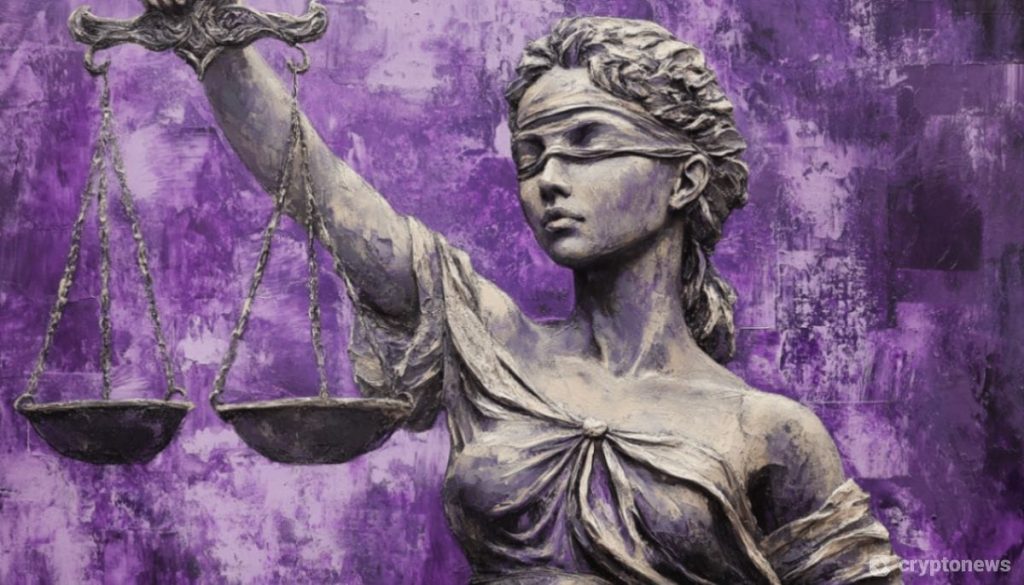Summarize this content to 2000 words in 6 paragraphs
A South Korean court has ordered Dumamu, the operator of the crypto exchange Upbit, to compensate a customer for delaying a LUNC transfer just before the Terra ecosystem crash.The unidentified customer was described as a resident of Vietnam aged in his 50s. The man originally filed a lawsuit at a branch of the Seoul Central District Court in September 2022.LUNC, also known as Terra Classic or Terra LUNA Classic, was formerly known as LUNA. The coin was delisted in South Korea shortly after the May 2022 crash.LUNC Investor: ‘I Pleaded with Upbit to Return My Coins’Hanguk Kyungjae reported that the civil division of the same court ruled in the investor’s favor.The presiding judge, Justice Park Jae-min ordered Dunamu to pay the man “approximately 147 million won (around $107,000).”Park also ordered Dumanu to make “late payment interest” reparations. The crypto exchange operator has the legal right to appeal the verdict at the High Court.The court heard that on March 24, 2022, the man tried to transfer LUNC 1,310 from an Upbit wallet to a wallet on the Binance platform.He was hoping to liquidate the money and “cash it out” into fiat (Vietnamese dong).But the man explained that Binance told him that the LUNC coins had been sent back after a “transfer problem.”When he checked his Upbit wallet, he was unable to find the coins. The court heard that this was due to the fact that the customer had failed to enter all the appropriate wallet address details in his original transfer request.As such, the tokens ended up in Upbit’s crypto wallet, rather than his own wallet on the Upbit platform.
South Korea’s current account recorded the biggest surplus in more than six years, boosted by global demand for chips used in AI https://t.co/BuFVsgt7OD
— Bloomberg (@business) August 7, 2024Upbit: AML Protocols Slowed Coin ReturnsThe court heard that the man asked Upbit to return the coins to his wallet. Upbit staff said that they would do so, but explained that they first had to abide by new anti-money laundering rules that went into effect on the day he made his request.The man then made “about 10” similar requests “over the course of a month.” However, the court heard, Upbit continued to “repeat the response that it would return the coins after ‘completing the appropriate procedures.’”The media outlet explained:“Then, on May 10, 2022, the Terra ecosystem and the [LUNC] token crashed. The value of the man’s [LUNC], which stood at about [$107,000] when he requested their return, fell 99.9% on May 18, just before the token was delisted. His coins’ value effectively dropped to zero.”The man had previously claimed that he asked Upbit when he could receive his coins “27 times.”Dunamu lawyers had claimed the exchange was not responsible for losses resulting from the exchange abiding by national law and protocols.
Crypto operators in South Korea including Upbit, and Bithumb will have to pay a supervisory fee for inspections by the regulator.#Upbit #Bithumbhttps://t.co/QnXHXtn8Q0
— Cryptonews.com (@cryptonews) August 1, 2024But the court dismissed these claims. The judge noted that Dunamu “clearly recognized the facts of the matter.” It added that returning the coins was at no point “technically impossible.”Judge: Crypto Exchange Should Have Prepared for Cases Like TheseThe court also criticized Dunamu for failing to prepare for such cases. It said that “as was not uncommon for cryptoassets to be returned due to ‘secondary address errors’ in the past, the defendant had an obligation to take the appropriate measures.”The court suggested that Upbit should have “assigned staff” or “set up a computerized system” to help recover funds in similar cases.Upbit “did not make any special preparations” to safeguard against such problems, the judge concluded.In June, Terraform Labs, the firm that launched the Terra ecosystem and coins like LUNC, announced it was ceasing operations.
The Montenegro Appellate Court upheld a ruling that Terraform Labs co-founder Do Kwon should be sent to his native South Korea, rejecting a push to instead send him to the US. https://t.co/UpSPODgQdo
— Bloomberg (@business) August 1, 2024Its founder Do Kwon is set to be deported from Montenegro to his native South Korea to face fraud charges.


